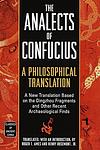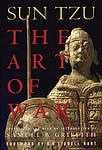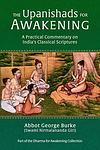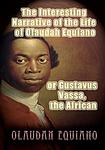The Greatest Non-Western "Nonfiction" Books of All Time
Click to learn how this list is calculated.
This list showcases a comprehensive and trusted collection of the greatest books from Non-Western literature. Curated through a specialized algorithm, it amalgamates 300 'best of' book lists to present a definitive guide to essential literary works from Asia, Africa, the Middle East, Latin America, and beyond. This selection celebrates the diverse and vibrant literary traditions of the world, offering readers a window into a myriad of fascinating narratives and perspectives. For more information on how these books are selected, please visit the rankings page.
Genres
Date Range
Reading Statistics
Click the button below to see how many of these books you've read!
Download
If you're interested in downloading this list as a CSV file for use in a spreadsheet application, you can easily do so by clicking the button below. Please note that to ensure a manageable file size and faster download, the CSV will include details for only the first 500 books.
Download-
1. Analects by Confucius
The Analects is a collection of sayings and teachings attributed to the Chinese philosopher Confucius and his disciples. The book emphasizes the importance of personal and societal morality, filial piety, and the cultivation of knowledge and virtue. Confucius stresses the importance of leading by example and treating others with respect and kindness. The Analects has had a profound impact on Chinese culture and philosophy, and its teachings continue to be studied and applied today.
-
2. The Art of War by Sun Zi
This ancient Chinese military treatise, written by a renowned general and military strategist, is a comprehensive guide on military strategy and tactics. It covers various aspects of warfare, from planning and preparation to execution and aftermath. The work emphasizes the importance of understanding one's enemy, using deception, and adapting to changing circumstances. It also stresses the importance of terrain, morale, and leadership. Despite its military focus, its principles have been applied to business, politics, and other fields, making it a timeless classic on strategy.
-
3. Tao Te Ching by Lao Tsu
This ancient text is a fundamental guide to the philosophy of Taoism, offering wisdom on how to live a balanced, virtuous life in harmony with the natural world and the Tao, the source of all existence. The book explores themes such as simplicity, humility, and non-aggression, emphasizing the importance of understanding and aligning oneself with the Tao. It provides guidance on leadership, personal growth, and spiritual enlightenment, advocating for a life of peace, contemplation, and connection with the universe.
-
4. Persepolis by Marjane Satrapi
This graphic novel is a memoir that provides a personal account of the author's childhood and young adult years in Iran during and after the Islamic revolution. The story portrays the impact of war, political upheaval, and religious extremism on ordinary people, while also exploring themes of identity, resilience, and the power of storytelling. Despite the harsh realities the protagonist faces, the narrative also includes moments of humor and warmth, providing a nuanced view of life in Iran during this tumultuous period.
-
5. Night by Elie Wiesel
This book is a memoir of the author's experiences during the Holocaust, specifically in the Auschwitz and Buchenwald concentration camps. The narrative focuses on the relationship between a father and son under the most extreme circumstances, the loss of faith in God, humanity, and in each other, and the horrifying reality of the systematic genocide of six million Jews during World War II. The book is a poignant and stark examination of the depths of human evil and the enduring power of hope and survival.
-
6. Orientalism by Edward W. Said
This book is a critical examination of Western attitudes towards the East, particularly the Middle East, and how these attitudes have shaped and continue to shape Western policies and perceptions. The author argues that the West has a long history of viewing the East as the "other," exotic and inferior, and that this view has been institutionalized through academic disciplines, literature, and media. This "Orientalism," as the author calls it, has served to justify colonialism and imperialism, and continues to influence Western attitudes and policies towards the East today.
-
7. Facundo by Domingo Faustino Sarmiento
"Facundo" is a socio-political critique and historical account of Argentina during the first half of the 19th century. The book examines the life of the gaucho, Facundo Quiroga, who becomes a powerful and ruthless warlord, illustrating the destructive effects of caudillismo (military dictatorship) on society. The author uses Quiroga's life to delve into broader themes such as the struggle between civilization and barbarism, the need for education, and the dangers of unchecked political power.
-
8. Mythology by Edith Hamilton
This book is a comprehensive guide to ancient Greek, Roman, and Norse mythologies, providing detailed accounts of various gods, goddesses, heroes, and other mythological creatures. It includes well-known stories like the Odyssey and the Iliad, along with lesser-known tales, and analyzes their significance in the cultures they originated from. The book also delves into the origins of these myths and their influence on later civilizations, offering readers a deep understanding of ancient cultures and their belief systems.
-
9. Quotations from Chairman Mao by Mao
This book is a collection of speeches and writings by the former leader of the People's Republic of China. It covers a wide range of topics including communism, revolution, class struggle, and the correct handling of contradictions among the people. The book was published with the intention of promoting the leader's ideology and was widely distributed during the Cultural Revolution. It was considered an essential guide to life and politics in China during this period.
-
10. Upanishads by Hindu scripture
The book is a comprehensive compilation of ancient Hindu scriptures known as the Upanishads, which are fundamental to understanding the core philosophies of Hinduism. The text delves into profound spiritual teachings and philosophical dialogues about the nature of reality, the self, and the universe, providing invaluable insights into concepts such as karma, reincarnation, moksha, and the ultimate truth of existence. It serves as a guide to spiritual enlightenment and self-realization, offering timeless wisdom for introspection and personal growth.
-
11. The Wretched of the Earth by Frantz Fanon
This book is a psychological and political analysis of the dehumanizing effects of colonization upon the individual and the nation. It provides a clear, passionate condemnation of colonialism and its legacy, arguing that violence is a necessary component of decolonization. The author also discusses the challenges that newly independent nations face, including the struggle to establish a national culture and the threat of neocolonialism.
-
12. Wild Swans: Three Daughters of China by Jung Chang
This book is a biographical account of three generations of women in China, spanning the years 1909 to 1991. The narrative follows the lives of the author's grandmother, a warlord's concubine; her mother, a high-ranking official in the Communist Party; and the author herself, who grew up during the Cultural Revolution before moving to the West. The book presents a vivid portrayal of the political and social changes in China during the 20th century, as seen through the eyes of these three women.
-
13. The Labyrinth of Solitude by Octavio Paz
This book is a profound and vivid exploration of Mexico's character, culture, and identity. The author delves into Mexico's history, politics, and psyche, examining the country's deep solitude and its impact on the national character. The book provides a comprehensive analysis of Mexican society, its myths, symbols, and rituals, offering a deep understanding of the Mexican people's unique way of perceiving the world. It also discusses the influence of the United States on Mexico and the complex relationship between the two countries.
-
14. The Pillow Book by Sei Shōnagon
"The Pillow Book" is a collection of personal observations, anecdotes, and reflections by a woman in the Heian court of Japan. It presents a detailed and vivid picture of court life, including the lavish ceremonies, the rivalries and intrigues, the idle pastimes of the courtiers, and the romantic escapades of the empress and her consorts. The book also contains lists, poetry, and personal musings, providing a unique perspective on the culture and customs of the Heian period.
-
15. I, Rigoberta Menchú: An Indian Woman in Guatemala by Rigoberta Menchú Tum
This book is an autobiographical account of a woman who grew up in a small village in Guatemala during a time of extreme political turmoil. Despite facing poverty, racism, and violence, she becomes a prominent activist for indigenous rights. Her story provides a firsthand account of the hardships and injustices faced by the indigenous people in Guatemala, and her tireless fight for their rights eventually leads her to win the Nobel Peace Prize.
-
16. Long Walk To Freedom by Nelson Mandela
"Long Walk to Freedom" is a powerful autobiography that chronicles the extraordinary life of Nelson Mandela. From his humble beginnings in a rural village to becoming the first black president of South Africa, Mandela's journey is one of resilience, determination, and unwavering commitment to justice and equality. Through his personal experiences, he provides a vivid account of the struggle against apartheid, his 27 years of imprisonment, and the eventual triumph of democracy. This book serves as an inspiring testament to Mandela's unwavering spirit and his lifelong fight for freedom and human rights.
-
17. Kafka's Other Trial by Elias Canetti
This book is a detailed examination and interpretation of the correspondence between a renowned author and his fiancée, Felice Bauer. The author uses these letters to analyze the writer's psyche, his relationships, and his work. The book provides a unique insight into the author's life and the influence of his engagement on his writing, particularly his novel "The Trial". The author's struggle between his commitment to writing and his relationship with Felice forms the central theme of the book.
-
18. The Interesting Narrative of the Life of Olaudah Equiano by Olaudah Equiano
This autobiographical book tells the story of an African man who was kidnapped from his homeland as a child and sold into slavery. The narrative follows his life as he is transported across the Atlantic, sold to various masters, and eventually purchases his own freedom. The book provides a detailed account of the horrors of the Middle Passage and the inhumane conditions of slavery, while also serving as a powerful testament to the human spirit's ability to overcome adversity.
-
19. Before Night Falls by Reinaldo Arenas
"Before Night Falls" is an autobiographical work that chronicles the life of a young Cuban man growing up during the political turmoil of the Cuban Revolution. The protagonist, a rebellious writer and poet, grapples with his sexual identity in a society that is deeply homophobic. Despite facing persecution, imprisonment, and exile, he remains defiant and committed to his art and personal freedom. His story provides a candid and deeply personal perspective on the harsh realities of life under Fidel Castro's regime.
-
20. On the Revolutions of the Heavenly Spheres by Nicolaus Copernicus
This book presents the revolutionary astronomical model that places the sun, rather than the earth, at the center of the universe. The author challenges the geocentric model of the cosmos, which had been widely accepted since the time of Aristotle, and instead proposes a heliocentric system, where the planets orbit the sun. This revolutionary idea transformed the way we understand our place in the universe, paving the way for modern astronomy and science.
-
21. The African Child by Camara Laye
"The African Child" is a semi-autobiographical novel that follows the journey of a young boy from his childhood in Guinea to his adolescence. The narrative captures the boy's experiences growing up in a traditional African society, his rites of passage, his relationship with his family, particularly his blacksmith father, and his eventual departure for studies in France. The book provides a vivid portrayal of the rich cultural traditions, beliefs, and values of the Malinke people, while also exploring themes of identity, change, and the tension between tradition and modernity.
-
22. Down Second Avenue by Es'kia Mphahlele
"Down Second Avenue" is a semi-autobiographical account of a black man's life under apartheid in South Africa. The narrative chronicles the protagonist's journey from childhood to adulthood, detailing his experiences with poverty, discrimination, and the struggle for education. Despite the harsh realities of life under apartheid, the protagonist's resilience and determination shine through, offering a poignant and powerful critique of the socio-political realities of the time.
-
23. Tractatus Theologico Politicus by Baruch de Spinoza
"Tractatus Theologico-Politicus" is a seminal work that explores the relationship between religion, politics, and philosophy. The author argues for the separation of theology and philosophy, asserting that the purpose of the state is to promote peace and security through rational governance, free from religious influence. He critiques the role of organized religion in politics and defends the freedom of thought and expression, advocating for a secular, democratic political order. The work also delves into biblical criticism, challenging traditional interpretations and suggesting that the Bible should be analyzed through a historical and contextual lens.
-
24. Rebellion In The Backlands by Euclides da Cunha
This book offers a detailed and vivid account of the War of Canudos, a significant peasant revolt that took place in the late 19th century in the Brazilian backlands. Through a blend of historical documentation and narrative, the text explores the socio-political conditions that led to the uprising, the charismatic leadership of Antônio Conselheiro, and the brutal suppression of the rebellion by the Brazilian government. The author delves into the geography, culture, and lives of the backland inhabitants, providing a deep analysis of the conflict as a reflection of the broader struggles within Brazilian society. This work is not only a historical account but also a profound commentary on the themes of civilization versus barbarism, social injustice, and the complexities of national identity.
-
25. Mencius by Mencius
"Mencius" is a philosophical text that presents the teachings and thoughts of Mencius, a follower of Confucius. The book is a compilation of dialogues, anecdotes, and allegories that illustrate Mencius's views on human nature, morality, and political theory. Central to his philosophy is the belief in the inherent goodness of human nature and the importance of cultivating one's moral character. The book also discusses his ideas on proper governance, advocating for a benevolent and virtuous ruler who prioritizes the welfare of the people.
Reading Statistics
Click the button below to see how many of these books you've read!
Download
If you're interested in downloading this list as a CSV file for use in a spreadsheet application, you can easily do so by clicking the button below. Please note that to ensure a manageable file size and faster download, the CSV will include details for only the first 500 books.
Download























